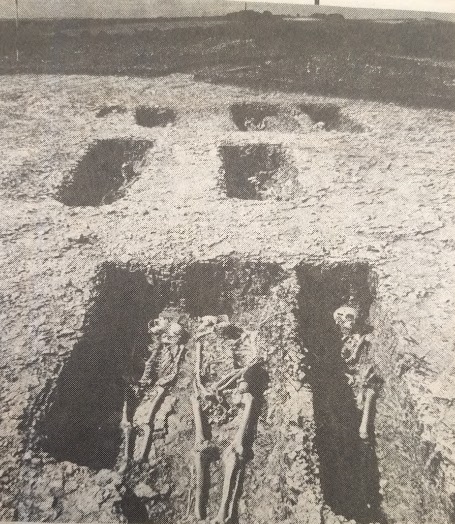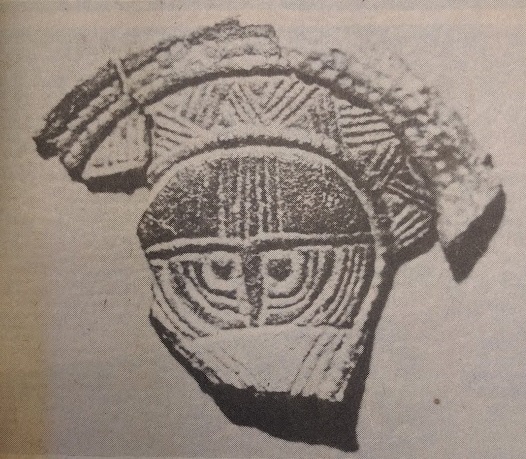This story was published on July 14 in the Observer series. Read the original story at chichester.co.uk/news/local/nostalgia-burial-ground-unearthed-in-chichester-1-7474792.]
[All images: West Sussex Record Office]
A discovery of ‘international importance’ was made in Chichester in 1983.
A 1,500 year old burial ground containing hundeds of graves was unearthed on farmland near the city.
Archaeologists described the find as of international importance.
As they pored over coins, brooches, spearheads, rings, buckles and skeletons emerging from the chalky soil, they reported that the discovery was vital in filling a gap in the history books about what happened in a “dark age” after the Romans left the Chichester area and eight century Saxon occupation.
Mr Alec Down, director of excavations, said: “It puts a seal on all we have been trying to do for the last 25 years.”

A mass of fascinating finds were dug from the site at East Marden.
One woman was buried with a Roman coin behind her ear – indicating a Roman belief in taking the cash to pay the ferryman to transport the dead across the river to hell.
Another was buried with a bag with a walrus ivory handle and a purse containing Roman coins.
The remains of a sword scabbard were found with one “high status” man, and there is a mount decorated with filigree work including interlaced snakes.
Dr Down, who went on to describe the discoveries in detail at a public meeting in Chichester’s Asssembly Rooms, said that the cemetry dated from the late fifth to the seventh century.
He said: “This period has always been pretty much a closed book in so far as the Saxon period is concerned around Chichester.”
Describing the site as of international importance, he said the need now was to find the settlement which would have been associated with the cemetery.

If this settlement could be found, they would have a rare opportunity of enlarging their knowledge of one of the most fascinating and little known aspects of our history.
One very important brooch found on the site was probably made in Denmark and suggested that the people were either Jutes or of Jutish extraction, rather than Saxons.
Such brooches were well known in Kent but not in this part of the country.
The gilt silver square-headed brooch, with an iron pin, was worn with a pair of copper saucer brooches ornamented with spirals, a copper alloy buckle, an iron knife, and four other iron objects.
Dr Down said that the site was discovered by a couple with a metal detector.
He said: “Luckily, they were responsible people operating with the full permission of the farmer.
“They reported their finds to the museum.”